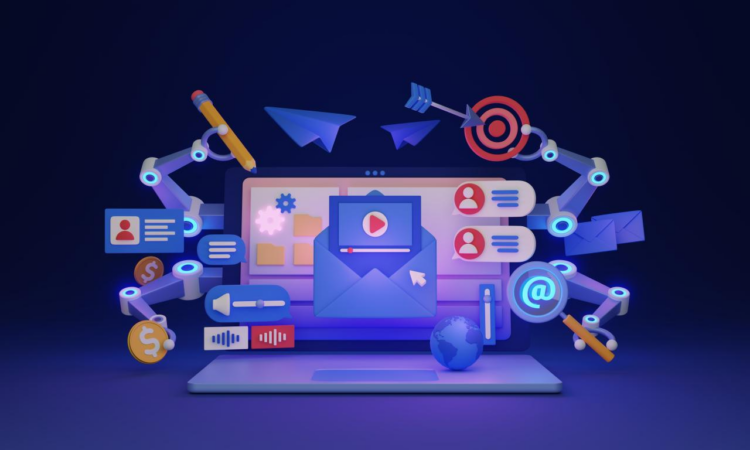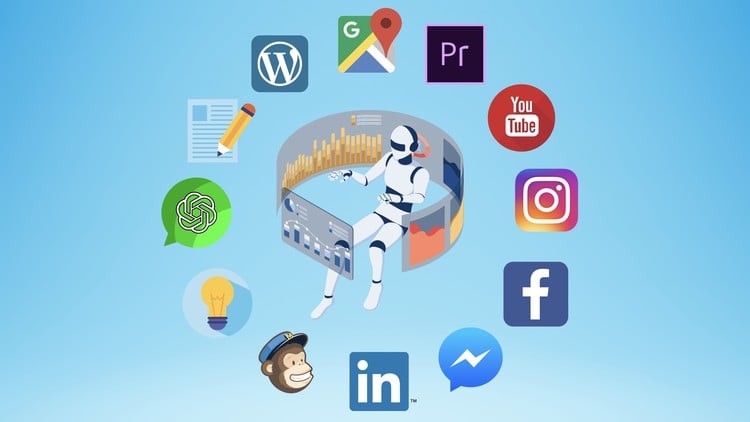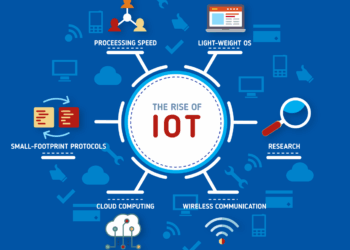The ever-evolving world of digital marketing has found its perfect ally—Artificial Intelligence (AI). As digital advertising becomes increasingly complex and competitive, marketers and businesses must turn to innovative technologies to stay ahead. AI isn’t just a buzzword anymore; it’s a foundational tool in the architecture of modern advertising strategies.
This article explores how AI is transforming digital advertising, the benefits and challenges of its implementation, and the future of ad tech powered by intelligent automation. Whether you’re a small business owner, a digital marketer, or a large enterprise, understanding how AI can be leveraged will give you a significant advantage in the online marketplace.
What is AI in Digital Advertising?
Artificial Intelligence in digital advertising refers to the use of machine learning, data analysis, and automation technologies to optimize advertising campaigns, understand consumer behavior, and increase return on investment (ROI). AI systems can process massive datasets far more efficiently than humans, enabling marketers to make data-driven decisions in real time.
A. Benefits of AI in Digital Advertising
A. Enhanced Audience Targeting
AI allows advertisers to segment audiences more precisely than ever before. Traditional demographic-based targeting has evolved into psychographic and behavioral targeting through data analysis.
-
AI can analyze a user’s online behavior, purchase history, social media activity, and more to build detailed user profiles.
-
This precision enables hyper-personalized ads, improving engagement and conversion rates.
B. Real-Time Ad Optimization
AI-powered tools like Google’s Smart Bidding or Meta’s Automated Rules automatically adjust ad bids, placements, and content based on real-time performance data.
-
These tools help maximize ad spend by reallocating budgets to high-performing campaigns.
-
Ad performance can be continuously monitored and adjusted without human intervention.
C. Cost Efficiency
By reducing waste in ad spend and enhancing targeting, AI improves campaign efficiency.
-
AI identifies underperforming segments and reallocates resources.
-
Predictive analytics estimate future trends and outcomes, minimizing risks and increasing ROI.
D. Personalized Content Delivery
AI can customize advertising content to match the preferences of individual users.
-
Dynamic creative optimization (DCO) tools allow ad creatives to adapt based on user data.
-
Users receive messages tailored to their needs, making ads more relevant and less intrusive.
E. Improved Customer Journey Mapping
AI tracks the customer journey across multiple touchpoints to deliver a seamless experience.
-
AI algorithms analyze how users interact with a brand from discovery to purchase.
-
This helps in delivering consistent messages and offers at the right time, improving retention and loyalty.
B. Key AI Technologies Used in Advertising
Several technologies under the AI umbrella contribute to the advancement of digital advertising:
A. Machine Learning
Machine learning (ML) allows systems to learn from data patterns and improve performance over time without being explicitly programmed.
-
ML algorithms detect trends in user behavior, predict future actions, and automate decision-making.
-
Common uses include predictive bidding and campaign performance forecasting.
B. Natural Language Processing (NLP)
NLP helps computers understand and generate human language.
-
NLP is used in sentiment analysis to understand consumer emotions and responses.
-
Chatbots and voice search optimization also use NLP to enhance customer engagement.
C. Computer Vision
This AI technology allows systems to interpret visual content like images and videos.
-
Platforms use computer vision to analyze visual ad content effectiveness.
-
Visual recognition aids in brand safety, identifying inappropriate content in ad placements.
D. Predictive Analytics
Predictive analytics uses statistical techniques and AI to forecast outcomes based on historical data.
-
Marketers use this to anticipate customer behavior, churn rates, and buying patterns.
-
Predictive models help plan more effective ad strategies.
E. Programmatic Advertising
Programmatic advertising automates the buying and selling of ad space using AI-driven decisions.
-
It enables real-time bidding (RTB) and ad placements at scale.
-
AI ensures the right ads are served to the right people at the right time.
C. How AI Is Transforming Ad Platforms
A. Google Ads
Google has deeply integrated AI into its ad ecosystem:
-
Smart Bidding automatically adjusts bids for conversions.
-
Responsive Search Ads adapt ad copy to perform better using machine learning.
-
Performance Max Campaigns utilize AI to optimize across all Google channels.
B. Meta Ads (Facebook and Instagram)
Meta uses AI to personalize feeds and ad placements:
-
Campaign Budget Optimization and Advantage+ campaigns use AI for maximum efficiency.
-
AI models suggest ad creatives and optimize delivery based on user interaction.
C. TikTok Ads
TikTok’s AI recommends ads based on user interactions and video watch patterns.
-
The For You Page (FYP) algorithm ensures hyper-relevant ad placements.
-
AI-driven insights improve content and campaign strategies.
D. Amazon Advertising
Amazon uses AI to promote products across its ecosystem:
-
AI analyzes user behavior, past purchases, and keyword searches.
-
It powers Sponsored Products, Display Ads, and Video Ads with precision targeting.
D. Challenges of AI in Digital Advertising
Despite its benefits, AI implementation in advertising isn’t without challenges:
A. Data Privacy Concerns
With regulations like GDPR and CCPA, user data handling has become more sensitive.
-
AI relies heavily on data, making privacy compliance crucial.
-
Advertisers must balance personalization with privacy and transparency.
B. Algorithm Bias
AI systems can inherit biases present in the data they are trained on.
-
This can lead to skewed targeting or exclusion of specific user groups.
-
Constant monitoring and ethical AI practices are required to minimize this risk.
C. Complexity and Cost
Implementing AI tools requires technical expertise and investment.
-
Smaller businesses may struggle to afford or understand advanced AI platforms.
-
However, platforms like Google and Meta are simplifying AI access with user-friendly interfaces.
D. Dependence on Third-Party Tools
Many advertisers rely on third-party AI tools, limiting customization.
-
Integration challenges and data silos can hinder efficiency.
-
Businesses must choose the right tools that align with their goals and infrastructure.
E. Best Practices for Using AI in Digital Advertising
To get the most out of AI-powered advertising, consider these best practices:
A. Start with Clear Objectives
-
Define what success looks like: conversions, leads, traffic, etc.
-
AI tools perform better with well-defined goals.
B. Clean and Structured Data
-
Ensure data quality before feeding it into AI systems.
-
Regularly audit and update datasets to avoid errors.
C. Monitor and Adjust
-
Don’t “set it and forget it”—AI still requires human oversight.
-
Regularly review performance reports and tweak settings as needed.
D. Test and Learn
-
Use A/B testing to compare AI-driven strategies versus traditional ones.
-
Continuously refine your approach based on outcomes.
E. Stay Updated
-
AI technology evolves rapidly; keep learning and adapting.
-
Attend webinars, follow industry news, and test new tools.
F. The Future of AI in Advertising
The future of AI in digital advertising promises even greater integration and innovation:
A. Voice Search and AI Assistants
-
Optimizing for voice search will become essential as devices like Alexa and Google Assistant grow in popularity.
-
AI will help create ads tailored for spoken queries.
B. Augmented and Virtual Reality (AR/VR)
-
AI will power immersive ad experiences within AR and VR platforms.
-
Brands can create interactive ads that feel like real-world engagements.
C. Autonomous Campaign Management
-
Full automation of ad strategies based on real-time business goals will become the norm.
-
AI will dynamically adjust budgets, creatives, and targeting without manual input.
D. Emotion AI
-
AI systems will analyze facial expressions, tone, and sentiment to tailor content.
-
This emotional insight will revolutionize ad personalization.
Conclusion
AI integration is not a futuristic luxury—it’s a present necessity for digital advertising success. It provides powerful tools to improve targeting, efficiency, and ROI, while also enabling businesses to create personalized experiences that resonate with consumers.
However, to truly benefit from AI, advertisers must approach it strategically—balancing automation with creativity, personalization with privacy, and innovation with ethics. By doing so, brands can forge stronger connections with their audiences and achieve greater impact in the competitive world of digital marketing.














